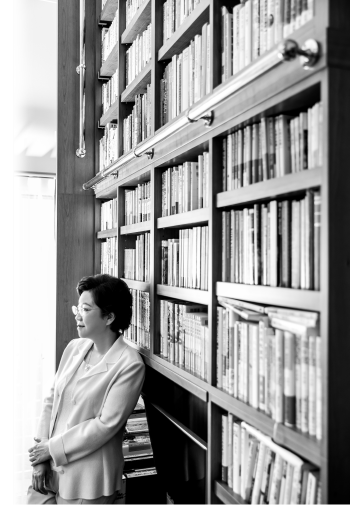I was born in downtown Tokyo in the height of the summer of 1962, the eldest of two children. Sometime after my younger brother was born, we moved from the gray streets of central Tokyo to the lush green suburbs where my father, an artist, supported us with just his paintbrush.
I fell in love with stories before I could even read. My grandmother was a treasure-trove of folktales and oral traditions that she shared with me, and my mother read to me every night. As a teenager, I became hooked on Japanese manga, as well as on British and American fiction and fantasy. Inspired by Rosemary Sutcliff’s historical tales, such as The Eagle of the Ninth, The Lantern Bearers and Knight’s Fee, and by Tolkien’s The Lord of the Rings, I began to dream of writing—of creating worlds that do not exist here and now yet seem totally real.
During a school trip to England in grade eleven, I stopped in at Cambridge specifically to visit the home of Lucy M. Boston, the well-known author of the Green Knowe series. I still treasure the Christmas card she sent me later.
In university, I majored in history and cultural anthropology, and then went on to do fieldwork in Okinawa for my master’s degree in cultural anthropology. From 1990, I spent about twenty years studying multiethnic coexistence and acculturation. To pursue this subject, I visited West Australia for several months a year to do fieldwork, mainly in the town of Murchison. The indigenous Aborigines of Australia belong to different regional groups, and the group known as Yamatji, whose traditional territory is in the mid-west, taught me a lot. I stayed with a number of families in the port town of Geraldton and in the small community of Mingenew and, with their help, pursued my field studies. The title of my doctoral dissertation was The Yamatji: Concerning the Clarification and Maintenance of the Ethnic Identity of Aborigines in a Certain Region.
I was in graduate school when my first novel, Seirei no ki (The Sacred Tree), was published in 1989, and my career as an author has now spanned almost three decades. The books I have written have been adapted for manga, animation, stage, and television, reaching a broad audience. For many years, I wrote while working full-time as a professor of cultural anthropology, but in the last few years, I have been teaching only once a year to allow me to focus on my writing.
Writing has offered me many opportunities to see the world, including an invitation to the International Literature Festival Berlin and to the biennial congress of the International Board on Books for Young People to receive the Hans Christian Andersen Award. In addition, as a way of making up for all the hardship I caused my mother, I used to take her somewhere new every year. She had tremendous curiosity and loved to travel. Over a period of 26 years until she passed away at the age of 83 in 2016, we traveled to more than 20 countries together.
I want to write stories not just about people but about people who live within the vastness of nature. My work as a cultural anthropologist, the trips I took with my mother, and all the people, cultures and lifestyles I have encountered in the process have greatly influenced the stories I create. I was also influenced by my grandmother’s stories of her grandfather, a master of old-style jujutsu. Captivated by her exciting tales of hand-to-hand combat, I fell in love with martial arts and joined a jujutsu class in my second year of university. Although I never became very good at it, that experience certainly helps me to depict combat scenes.
So this is who I am. And that’s surely why, even though I’m just a weak little squirt about the size of a hobbit with much less courage, I like to write stories that are thrilling and grand in scale.





